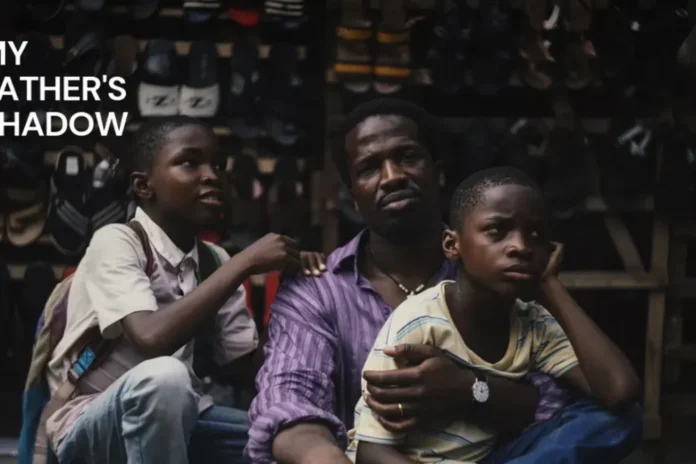Akinola Davies Jr.’s My Father’s Shadow was screened at Lagos media screening, on Tuesday evening at Filmhouse Cinema, Twin Waters Entertainment Centre, Oniru, with attendees describing the drama as moving and deeply personal.
The one-hour, 34-minute feature earned international acclaim in the Festival de Cannes’ prestigious Un Certain Regard section earlier this year and was warmly received by journalists, film critics, and industry stakeholders.
Produced by Fatherland Productions, Element Pictures, MUBI, and Crybaby, with support from BBC Film and the BFI, My Father’s Shadow showcases the collaborative strength of Nigerian and international cinema.
Kene Okwuosa, Filmhouse Group CEO described the film as proof of Nollywood’s growing global reach. At the same time, FilmOne Entertainment’s Ladun Awobokun hailed it as “the next chapter of cinematic possibility in Nigeria.”
After the screening, Akinola Davies told journalists that the story was designed to capture memory, specifically a day shared between children and their father. He said the ambiguity around the father’s death was deliberate, noting that even he finds the ending difficult to watch because it reminds him of losing his own father. Creating the film, he added, served as a form of personal therapy.
Drawing a broader parallel, the filmmaker compared a father’s responsibility to provide for his family with a government’s duty to care for its citizens. When that duty is neglected, he said, dysfunction sets in. He connected this idea to Nigeria’s history, observing that promises of change following the annulled 1993 election remain unfulfilled for many. Davies explained, “I was 11 in 1993. I’m about to be 43 now. For many, the promises of change from that annulled election remain unfulfilled. Some have even died waiting for it.
The film was set against the turmoil of Nigeria’s annulled 1993 election; the story weaves personal memory into national history, showing how private lives are shaped by public upheaval.
The film is at once intimate and ambitious as cinema. Its 16mm texture deepens the nostalgic feel, while Ṣọpẹ́ Dìrísù’s moving performance as Folarin grounds the drama in raw humanity.
The film is both an artistic triumph and a landmark moment for Nigerian filmmaking. Some may find its unanswered questions unsettling, but the film’s power lies in that ambiguity, transforming personal grief into a universal story of memory, resilience, and identity.




